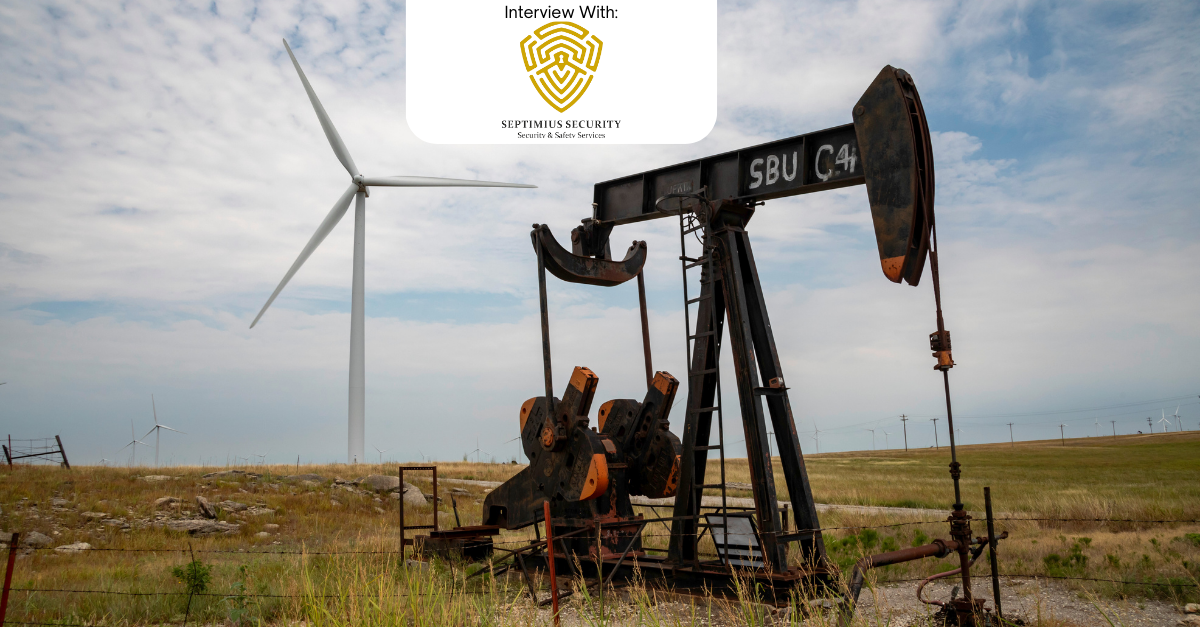This article provides an in-depth analysis of the prospects and developments in North Africa's oil and gas industry for the year 2024, emphasizing its resilience and potential for growth despite various challenges
North Africa’s oil and gas industry has long been a major contributor to the region’s economy, providing significant revenue streams for countries like Algeria, Libya, and Egypt. Despite the challenges posed by declining reserves, geopolitical instability, and low oil prices in recent years, the sector is poised for a bright future in 2024.
One of the key drivers of this optimism is the increasing focus on renewable energy and decarbonization efforts in many parts of the world. While this trend presents a significant challenge to traditional fossil fuel industries, it also presents opportunities for North African countries to position themselves as leaders in the transition to a low-carbon economy.

Algeria, for example, has already announced plans to invest heavily in renewable energy, with a target of generating 22% of its electricity from renewable sources by 2025. This will not only help the country to reduce its carbon footprint but also create new opportunities for investment and job creation in areas like wind and solar power.
Another factor driving optimism in North Africa’s oil and gas industry is the continued discovery of new reserves. In recent years, several significant discoveries, mainly offshore, have been made in countries like Algeria, Libya, and Egypt, suggesting that there is still significant potential for growth in the region.
In addition to these positive developments, there are also signs that oil prices are starting to recover after several years of volatility. While prices remain well below their peak levels seen in 2014, many analysts believe that they are starting to stabilise and may even rise further in the coming years.
This trend is likely to be driven by a number of factors, including growing demand from emerging economies like China and India, as well as ongoing supply disruptions caused by geopolitical tensions and production cuts by major oil-producing countries like Saudi Arabia and Russia.

Of course, there are still significant challenges facing North Africa’s oil and gas industry in 2024. One of the most pressing issues is the ongoing conflict in Libya, which has disrupted production and caused significant damage to infrastructure. Until a political solution can be found to this conflict, it will continue to pose a major obstacle to the sector’s growth.
Another challenge is the need for continued investment in new technologies and infrastructure to maximise efficiency and reduce costs. This will require significant capital outlays from both public and private sector actors, as well as close collaboration between governments and industry stakeholders to ensure that resources are allocated effectively.
Despite these challenges, however, there is little doubt that North Africa’s oil and gas industry will continue to play a major role in the region’s economy over the next few years. With a focus on innovation, investment, and collaboration, it is possible for countries like Algeria, Libya, and Egypt to position themselves as leaders in the transition to a low-carbon economy while continuing to benefit from their rich natural resources.
Here’s some more information on the specific projects and initiatives that are driving growth in North Africa’s oil and gas industry in 2024:
- Algeria’s Gas Export Strategy: Algeria is one of the largest natural gas exporters in Africa, and in 2024, the country is expected to continue expanding its export capacity. The government’s new gas export strategy, which aims to increase exports to Europe by 50%, is a key driver of this growth. The strategy involves investing in new pipelines, storage facilities, and liquefied natural gas (LNG) plants to meet growing demand from European markets.
- Libya’s Oil Production Recovery: Despite ongoing political instability, Libya’s oil production is expected to recover significantly in 2024. The country has significant oil reserves, and with the help of international partners like Italy it is working to restore its infrastructure and increase production capacity. This will not only provide a major boost to Libya’s economy but also help to stabilise global oil markets by increasing supply.
- Egypt’s Renewable Energy Investment: Egypt is investing heavily in renewable energy as part of its efforts to reduce carbon emissions and increase energy independence. In 2024, the country is expected to continue expanding its renewable energy capacity, with a focus on wind and solar power. This will not only help to reduce Egypt’s reliance on imported gas but also create new opportunities for investment and job creation in the renewable energy sector.
- Tunisia’s Offshore Exploration: Tunisia has significant potential for offshore oil and gas exploration, and in 2024, the country is expected to launch several major offshore exploration projects. These projects will involve partnerships with international oil companies like Total and Eni, as well as significant investment in new technologies and infrastructure to maximise efficiency and reduce costs.
- Morocco’s Gas Import Strategy: While Morocco does not have significant domestic oil or gas reserves, it is working to position itself as a regional hub for energy trade by importing large volumes of gas from Algeria and other neighbouring countries. This strategy will not only provide Morocco with a reliable source of energy but also create new opportunities for investment and job creation in the energy sector.
These are just a few examples of the many projects and initiatives driving growth in North Africa’s oil and gas industry in 2024. With a focus on innovation, investment, and collaboration, it is clear that the region has a bright future ahead!




.png)

.png)
